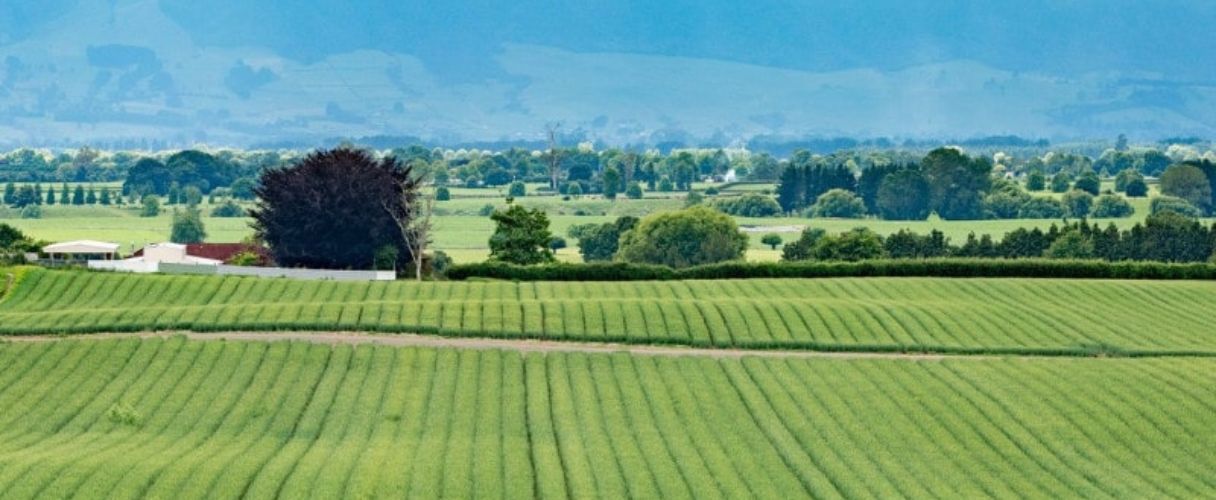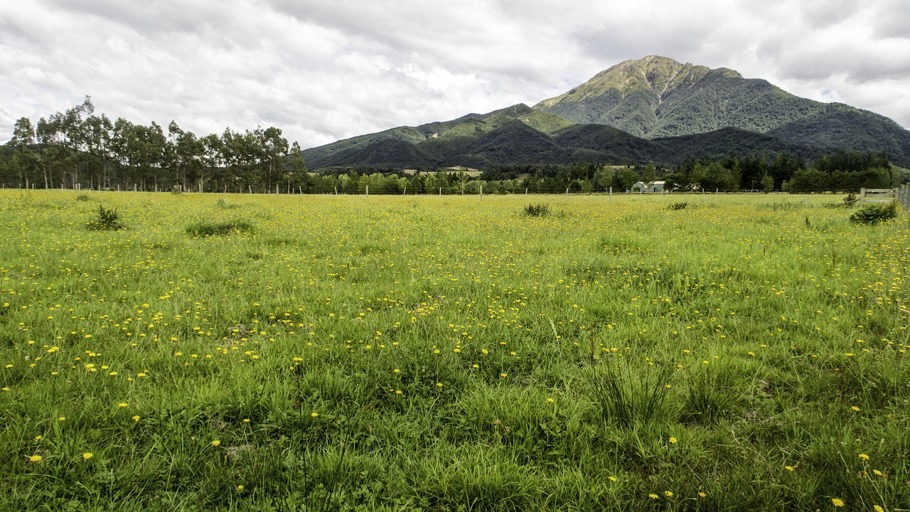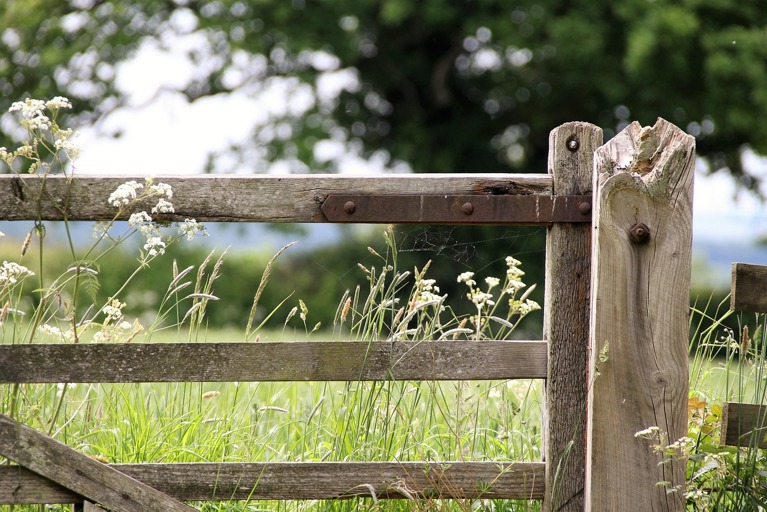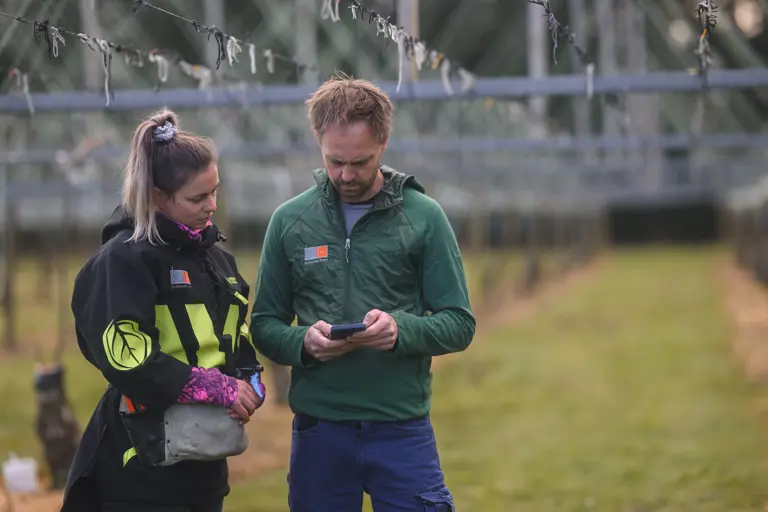Agricultural compliance schemes: A practical guide for Australia and New Zealand farmers and growers
The complete guide to agricultural compliance schemes in Australia and New Zealand, including Sustainable Winegrowing, Freshcare, and more.
Compliance

In the world of agriculture, compliance isn't just about following rules. It's about safeguarding your farm, your people, and access to the market.
At every stage of the agricultural supply chain farmers and growers face regulations. This includes land acquisition and preparation, production and on-farm processing, transport of inputs and products to market, marketing, and product sales.
Staying on top of the many and ever-changing compliance rules and regulations can feel burdensome, but the consequences of falling behind are real and impactful.
In this guide, we'll take a deep dive into various compliance schemes throughout Australia and New Zealand, and why they matter for your agribusiness. We will also show how you can ease the regulatory burden by using technology to streamline the compliance process.
The benefits of agricultural compliance schemes
Agricultural compliance schemes play a pivotal role in maintaining standards within the industry. Whether they relate to government legislation or simply industry best practices, there are many reasons to comply with these schemes.
In fact, failing to comply with these schemes can present severe risks to your business.
Benefits of compliance
- Achieving government policy outcomes: Ensuring your farm follows government policies is more than a formality. It's about primary producers actively contributing to broader agricultural goals and embracing sustainable practices.
- Meeting regulatory requirements: Compliance goes beyond checkboxes; it's a commitment to regulations that protect your workers, the environment, and the quality of your produce.
- Risk mitigation: By spotting and fixing potential issues, regular inspections and audits help prevent financial and reputational harm to your farm.
- Trust building: Regular compliance audits show stakeholders—customers, investors, and partners—that your farm takes rules seriously. This builds trust and a solid reputation in the agricultural community.
- Operational excellence: Compliance audits aren't just about following rules; they lead to better internal processes. This boosts operational efficiency and cuts down on wasteful practices, making your farm run smoother.
Risk of non-compliance
- Legal penalties: Violating agricultural regulations can lead to legal actions, fines, suspension of farming activities, or even jail. Non-compliance with environmental, safety, or food safety standards may result in legal consequences.
- Market access restrictions: Failure to comply with international trade and quality standards may result in restrictions on market access. This can limit a farm's ability to export products, reducing potential revenue streams.
- Financial losses: Non-compliance often leads to additional costs, such as fines, legal fees, or expenses related to corrective actions. Farms may also face increased insurance premiums or difficulty securing financing.
- Productivity challenges: Non-compliance with safety or quality standards may result in disruptions to farm operations. Productivity may be compromised, affecting the quantity and quality of agricultural products.
- Environmental impact: Failure to adhere to environmental regulations can lead to negative impacts on the surrounding ecosystem. This may result in soil degradation, water contamination, or harm to wildlife, affecting the long-term sustainability of the farm.
- Health and safety risks: Non-compliance with health and safety standards poses risks to farm workers and can lead to accidents or injuries. This not only affects the well-being of individuals but also exposes the farm to potential legal actions.
- Loss of certification: Farms that participate in certification programs, such as organic or fair trade, may lose their certification status due to non-compliance. This can impact market access and consumer trust.
What roles do agricultural workers have in compliance?
Making sure the farm follows the rules and stays compliant is a joint effort. Whether it’s a farm owner or a contractor, everyone involved has a part in creating a safe and compliant agribusiness.
Their decisions impact the long-term sustainability and success of the agribusiness.
Their adherence to rules contributes directly to the safety and sustainability of the workplace.
Farm owners
Farm owners lead the way in keeping everything in line for the business to operate, taking charge of the overall compliance strategy for the business. They make sure every job follows the rules, creating a safe place for workers, and securing the future of their agribusiness.
Agriculture workers
Workers have a say in compliance that goes beyond just rules. If they don't follow the rules, it directly affects their well-being and how they earn a living. It's more than following procedures for them; it's about making sure the workplace is safe and sustainable.
Compliance managers
They ensure a safe work environment, trying to minimise accidents and promoting a culture of well-being. They make sure the farm not only meets but goes above and beyond the standards set by laws and regulations.
Contractors
Even if they're not part of the regular farm crew, contractors also play a big role. They need to stick to the rules to keep their reputation and help the farm succeed. Their commitment to following the rules adds to the farm's overall success.
Making sure farms stay compliant is a team effort. Farm owners, workers, compliance managers, and contractors all play a part in keeping the agribusiness safe and successful. It's crucial that they join forces, understanding their shared responsibility in building a thriving, compliant, and secure agricultural setup. By working together like this, farms can handle challenges well and keep succeeding in the long run.
Types of compliance in agriculture
Compliance requirements can be different based on where you are, the type of farming you do, and the region you're in. Each area and type of farming has its own set of rules because they have different needs, priorities, and challenges.
For example, places with different climates or cultural practices may have different rules. In a tropical area, they might focus on preserving biodiversity, while in a place with limited water, they care a lot about using water efficiently.
If you're an agribusiness that trades internationally, you also need to follow global rules. This is important for being able to sell your products in different markets and stay competitive.
To be a successful agribusiness, it's important to understand the legal, cultural, economic, and environmental factors that are specific to your area and the kind of farming you do. This helps you follow the right rules and standards for your situation.
Now, let's explore the main areas of compliance to create a safe and responsible farming environment in Australia and New Zealand.
Biosecurity compliance
Biosecurity compliance involves safeguarding your farm against pests and diseases. You manage access to your farm to prevent potential biosecurity risks. Regular monitoring of plant and animal movements ensures they don't carry pests or diseases. Clear rules are followed to prevent the spread of diseases, enhancing the overall biosecurity of your property.
Work Health and Safety (WHS) compliance
This is about making sure everyone working on your farm stays safe from hazards and risks. You induct your workers well so they know how to do their job without getting hurt. You empower them to identify hazards and risks that could be dangerous, and you make sure your lone workers have the right systems and access to emergency support to stay safe.
Environmental sustainability compliance
Environmental sustainability compliance focuses on farming practices that benefit the environment. It involves using methods that preserve the land, minimising harm. The goal is to maintain food quality while safeguarding soil and water quality, and avoid excessive chemical use.
Contractor compliance
When you engage with contractors to do work on your farm, you check them carefully to make sure they are fit to work and don’t cause any risk to your operations. When they arrive, you must ensure they follow the property rules.
Food safety compliance
This is about making sure the food you produce is safe to eat. You follow specific rules for how you grow and process your food. You also make sure everything is clean during the whole farming process, and you keep track of where your food comes from to make sure it's good quality.
Organic compliance
If you're doing organic farming, this means you get certified, like a stamp of approval, to show that you're doing things the right way. You follow specific rules for organic farming to make sure everything is natural and healthy.
By meeting these compliance schemes, you can make sure your farm is safe, good for the environment, and follows the rules in Australia and New Zealand.
What compliance schemes exist in Australia and New Zealand?
There are several key agricultural compliance schemes for Australian and New Zealand to be aware of. We’ve assembled a few of the most significant.
For each program, we’ve also provided an overview of the main steps involved in becoming certified. However, these are just brief summaries. Get in touch with the operators of each scheme for more information on becoming accredited.
While this is not an exhaustive list, it is the perfect starting point to understand compliance in each of these countries.
Australian agricultural compliance schemes
Many compliance schemes are available to farmers and growers of all kinds in Australia. This enables all forms of agribusinesses to ensure they are complying with regulations and best practices.
SWA (Sustainable Winegrowing Australia)
Sustainable Winegrowing Australia is a certification in Australia for grape growers and winemakers. This offers them an opportunity to proactively meet the growing demand for sustainable wines. In addition to meeting consumer and retailer demands, this certification enables recording and measuring what you do and use, so you can start to find efficiencies, reduce environmental impact, and create a purposeful brand story.
With over 1,300 members and a member grape crush of 840,000 tonnes, it’s a highly significant part of modern Australian winegrowing. It’s an excellent way to reduce your business’ environmental footprint and create a better future for winegrowers.
SWA enforces 2 standards known as the Australian Wine Industry Standards of Australian Practice. One standard is for viticulture, and relates to the production of wine grapes. The other standard is for wineries, and relates to the operations of these businesses.
Certification with SWA follows a simple process:
- Complete the expression of interest form.
- Complete training based on the standards.
- Implement the necessary changes in your business.
- Contact an approved certification body to arrange an audit.
- Keep up with annual obligations, such as providing business metrics and submitting self-assessment workbooks.
Freshcare Certification
Freshcare certification assures that produce is safe to eat, meets customer standards, complies with laws, and is environmentally conscious. Certification is available for on-farm safety, quality, supply chain, viticulture sustainability, and winery sustainability. Freshcare works in collaboration with SWA on the latter 2 standards.
Freshcare states that its programs are “created to be implemented as standalone programs or integrated into one combined assurance system.” This means that if multiple standards are relevant to your business, they can be easily integrated.
Freshcare standards are industry leaders, and compliance with them has far-reaching implications. For instance, indirect suppliers to Woolworths are required to have Freshcare certification.
Here’s the process for getting Freshcare certified:
- Sign up for and complete training. This usually takes the form of 1-day face-to-face workshops. eLearning is also available for the Supply Chain Standard.
- Implement the standard in your business. This can involve risk assessments, internal training and documenting relevant procedures.
- Conduct an internal audit of your business.
- Book and receive an external audit, to be conducted by 1 of 7 Certification Bodies.
- Action the Corrective Actions Record you receive from your audit.
- Receive and display your Freshcare certification.
Woolworths Supplier Excellence (WSE) program
This refers to compliance with standards set by the Woolworths supermarket chain. Businesses supplying to Woolworths need to be certified under the Woolworths Supplier Excellence (WSE) standard.
Created based on feedback from suppliers, the Supplier Excellence Program defines necessary product safety, quality and compliance requirements for the supply of the Woolworths Group own-branded consumer goods.
The program is invitation only. If you directly supply fruits and vegetables to Woolworths, you must have WSE certification. If you indirectly supply these products, you need Freshcare certification.
The process for WSE certification is as follows:
- First, you must be invited to become certified by Woolworths.
- Take part in Hazards Analysis Critical Control Points (HACCP) training, provided by organisations such as QMS audits.
- Develop a HACCP plan and quality manual.
- Conduct an internal audit.
- Conduct an external Woolworths audit to ensure all elements of the program are maintained.
LPA (Livestock Production Assurance)
LPA certification is specific to the livestock industry. It ensures that livestock producers comply with certain standards related to food safety, animal welfare, and biosecurity.
It is an on-farm assurance program that “underpins market access for Australian red meat”. It is a critical part of operating a profitable livestock agribusiness.
The program consists of 7 requirements:
- Property risk assessments.
- Safe and responsible treatment of animals.
- Stock foods, fodder crops, grain and pasture treatments.
- Preparation for dispatch of livestock.
- Livestock transactions and movements.
- Biosecurity.
- Animal welfare.
One of the most important of these requirements is “livestock transactions and movements”. When you join LPA, you’ll receive a Property Identification Code (PIC). This helps to trace the movements of livestock throughout Australia. When livestock are moved, documentation is required.
Here’s the process for becoming a member of LPA:
- Sign up for a new PIC.
- Register to get your PIC accredited.
- Complete the online training modules.
- Complete the LPA initial accreditation assessment and animal welfare certificate.
- Prepare to be randomly audited. 2,500 LPA members are randomly audited each year.
GLOBALG.A.P. (Good Agricultural Practices)
GLOBALG.A.P. certification focuses on sustainable and ethical agricultural practices. Farms with G.A.P. certification adhere to guidelines that cover a range of areas, including environmental conservation, worker safety, and product quality.
Though G.A.P. is a global standard, it plays a significant role in the Australian market. It can also be critical for exporting agricultural goods.
Follow this process to receive GAP certification:
- Access the relevant GAP documents and checklists.
- Contact an accreditation body such as BSI to register for your Global Gap Number (GGN).
- Complete the relevant self-assessment checklists.
- Correct any practices within your business that do not comply with the standards.
- Arrange an audit, which typically lasts 2 days.
New Zealand agricultural compliance schemes
Like its cross-Tasman neighbour, New Zealand has a host of schemes which provide farmers and growers with the support they need to comply with regulations and best practices.
SWNZ (Sustainable Winegrowing NZ)
Sustainable Winegrowing NZ™ is widely recognised as a world-leading sustainability programme. This certification emphasises continuous improvement and adherence to standards for sustainable practices in vineyards and wineries.
For growers, it means working confidently within a strong sustainability system. They can sell their grapes to wine companies certified by SWNZ, and they receive benchmarking reports showing where they can do better and make informed decisions to use resources efficiently and improve economic sustainability.
Sustainable Winegrowing New Zealand follows this process for certification:
- To become initially certified, you must complete an application form for either wineries or vineyards.
- Members must complete annual submissions in the form of an online questionnaire.
- If any part of this questionnaire suggests non-compliance, corrective actions are issued.
- Vineyard members must submit a complete spray diary annually.
- Regular audits are conducted by independent verification companies.
GRASP (Global Risk Assessment on Social Practice)
GRASP is a component of GLOBALG.A.P. certification, relating specifically to the welfare of workers. GRASP is subject to national interpretation guidelines, ensuring that it is aligned with the laws of countries in which it operates. You can access the New Zealand national interpretation guidelines for GRASP here.
Audits for GRASP can be added onto a GLOBALG.A.P. audit, meaning it can easily be rolled into GLOBALG.A.P. certification.
Another standard of note in relation to GRASP is the NZGAP Contractor Standard. This Standard is designed for contractors working with NZGAP, Social Practice add-on, GLOBALG.A.P., and GRASP certified growers or supply chain operators. Engaging NZGAP certified contractors assures growers and supply chain operators that these contractors meet the standards for both production and social practices.
Lead with Pride
This dairy certification programme acknowledges and financially rewards suppliers who excel in dairy farming best practices. Dairy farms with the Lead with Pride certification demonstrate a commitment to leading in areas of environment, animal health and welfare, milk quality, and social responsibility.
Lead with Pride is operated by Synlait Milk, a leading New Zealand dairy processor. The 4 pillars of the program are:
- Environment
- Animal health and welfare
- Milk quality
- Social responsibility
To be Lead with Pride certified, suppliers must demonstrate leadership and a forward-thinking approach through extensive documentation of on-site processes. They must also pass regular audits.
Becoming Lead with Pride certified goes hand-in-hand with becoming a Synlait supplier. To begin the certification process, get in touch with Synlait.
What global agricultural compliance schemes exist?
In addition to the compliance schemes addressed above, there are several more international strategies farmers and growers should consider participating in.
ISO (International Organization for Standardization)
ISO certification verifies that a farm adheres to international standards set by the ISO, a large non-government organisation consisting of 170 national standards bodies.
The most significant ISO standards for agriculture are:
- ISO 14001: Environmental Management System
- ISO 9001: Quality Management System
- ISO 22000: Food Safety standard
- ISO 45001: Occupational Health & Safety Standard
There are many organisations which facilitate certification with these standards in Australia and New Zealand. The general process for certification is as follows:
- Familiarise yourself with the standard.
- Go through a process of internal auditing.
- Implement corrective actions.
- A certification body will verify any relevant documentation and conduct the necessary audits
ISCC (International Sustainability and Carbon Certification)
ISCC certification focuses on sustainability and carbon footprint in agriculture, and in particular, biofuel production. Farms with ISCC certification adhere to standards that promote environmental responsibility.
The ISCC is a highly popular certification scheme in Europe, and can be very useful for suppliers looking to export to this market.
In Australia, you can complete ISCC Sustainability Declarations through the National Grower Register. You must also complete a self-assessment process, and prepare for the possibility of being audited.
In New Zealand, ISCC accreditation is available with support from organisations such as SGS, which offers training courses, verification of calculations and audits.
What does compliance typically involve?
In this section, let’s cover the practical details of when inspections or audits occur and how you should prepare for them.
Inspections or compliance checks
During inspections, officials will assess if your farm follows the rules. This includes looking at safety measures, environmental practices, and how you handle food. You should have your documents and processes in place to show evidence that your farm is doing things right.
Audits
A compliance audit on farms involves a thorough examination and verification of farm operations to ensure they adhere to relevant laws, regulations, and industry standards. The process typically includes reviewing documentation, inspecting facilities, and assessing practices to identify any areas of non-compliance.
The focus of audits is on transparency, which means being open and clear about your farm practices. If you're doing things right, you have to gather evidence to show it during an audit through documentation and reports. If any issues are identified, you’ll have the chance to determine the best way forward.
Fit and proper person test
This is making sure everyone involved in the farm, including contractors, is suitable for the job. It ensures that you have all the paperwork in place to show that they have the right expertise to do the job and follow the rules.
Understanding and preparing for these aspects of farm compliance is essential for a smooth and successful process. Whether it's showcasing safety measures during inspections or evidence of transparency in audits, a proactive and standardised approach sets the stage for effective farm compliance.
Simplifying farm compliance with digital solutions
Keeping up with compliance can be a real headache for farm managers.
Using traditional methods, like whiteboard risk registers, paper sign-in books, and manual record-keeping and reporting creates inaccuracies and stress of managing records.
Let's dive into the common issues farm owners and compliance managers face to stay compliant.
- Manual record keeping: Creating reports manually and collecting info from scattered sources across whiteboards, papers, and risk registers.
- Inaccurate records: it's difficult to maintain accurate records through manual or paper based processes. For example, it is easy to forget to check in to the property with old-school sign-in sheets.
- Getting everyone on board: Making sure everyone on the farm takes responsibility for following the rules and completing compliance tasks in a standardised manner is not easy.
- Stay on top of regulatory changes: It's hard to stay updated on the rules that matter for your type of farming because of the evolving nature of rules and regulations.
- Limited resources: Farm tasks come first, and paperwork often gets left behind because there's not enough time.
In recent years, agriculture compliance has been increasingly done using technology driven solutions like apps or digital platforms. Tech solutions lessen the amount of paperwork and admin, making compliance stress-free. It lowers the pressure of doing everything at the last minute ahead of an audit, as the information is already being collected digitally as part of the day-to-day, and helps agribusinesses tick the box for compliance in the most efficient way.
5 benefits of using technology to manage compliance at your farms, vineyards and orchards
Time and money spent on compliance could be used on nurturing your crops, expanding your business, or investing in innovations. Instead, it's diverted into the paperwork, and admin.
And here's where technology steps in. Technology offers a simpler, and more efficient way to manage compliance, which frees up your time and resources. Technological tools designed to reduce regulatory burden means less time spent on the admin required to meet compliance and more time spent on productivity-enhancing activities for your agribusiness.
1. Automatic data capture
Tech solutions effortlessly capture essential data in the background, ensuring that compliance records are consistently up-to-date.
2. Higher adoption with ease of use
The user-friendly nature of tech tools contributes to higher adoption rates, seamlessly integrating compliance tasks into daily operations.
3. Accuracy of data
By leveraging technology, you can rely on accurate and precise data, eliminating the risk of errors associated with manual record-keeping.
4. Readily available information
Access relevant compliance information instantly, as digital solutions store data in a readily available format, facilitating quick retrieval.
5. Time savings
Technology streamlines the compliance process, saving valuable time that can be redirected towards more productive aspects of farm management.
How Onside helps farms stay compliant
Amidst the multitude of farm tasks, keeping records and staying compliant can be overwhelming. Onside's clear processes and tech tools streamline these tasks, allowing you to focus on the essential aspects of farm operations.
Onside simplifies farming compliance, making it easier for everyone involved. It's a collective effort, where farm owners, workers, compliance managers, and contractors play crucial roles in ensuring long-term success.
Using clear processes and tech enabled tools can streamline compliance processes of record keeping, gathering data and generating reports easier and more efficiently so that you can keep your focus on the more pressing farm operations issues.
Onside is the fast and efficient way to tick the box for compliance for your agribusiness. Book a demo to see how it works.


